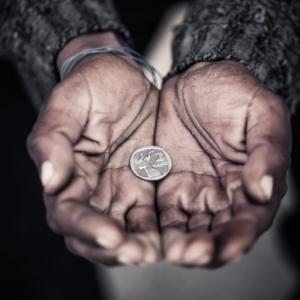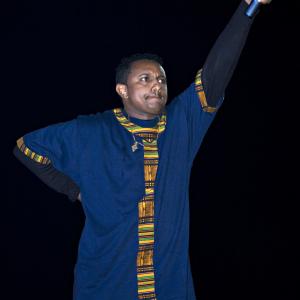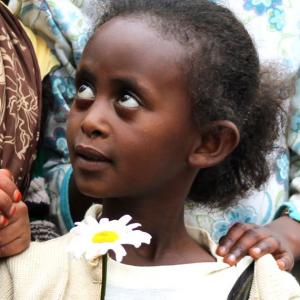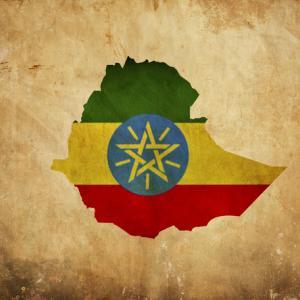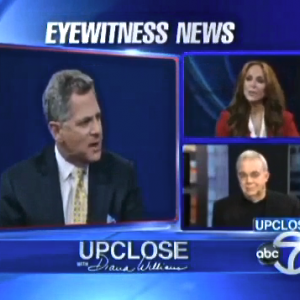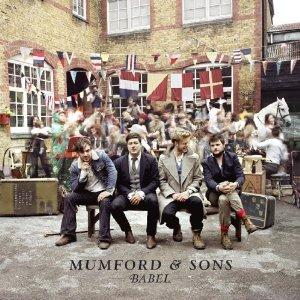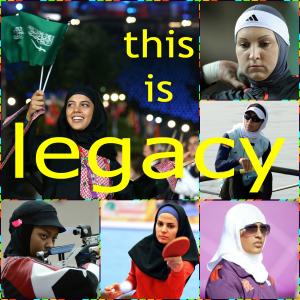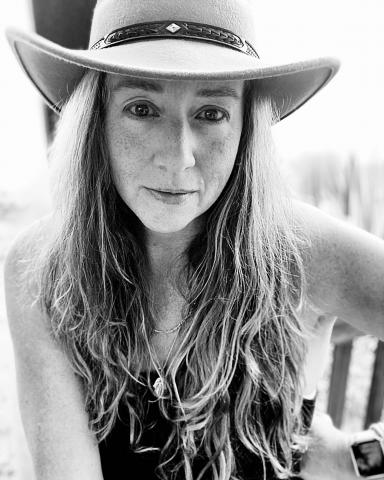
Cathleen Falsani is a longtime religion journalist and author of six nonfiction books. You can follow her on Twitter @godgrrl and read more of her work via The Numinous World.
Posts By This Author
Ethiopia: How Foreign Aid Has Helped a Generation
LALIBELA, Ethiopia -- You know the images you have in your mind of Ethiopia from 27 years ago? The ones from the nightly news reports on TV about the famine in the Horn of Africa as the death toll mounted and horror stories grew more unfathomable by the day.
Scorched, cracked earth. The carcasses of ematiated, dead cattle lying in the baking sun. Hundreds of thousands of stick-thin refugees wandering in the dust, hoping to have enogh strength to make it to a camp that might have water and food. The babies and children with orange hair and distended stomachs -- indications that they were in the advanced stages of malnutrition and starvation.
I am happy to report that the Ethiopia of 2012 is not the Ethiopia of 1985.
Thanks to global efforts (Live Aid, etc., back in the day), foreign aid, and the very real efforts of the Ethiopian government and people themselves, the land I saw earlier this month looks nothing like those old images in my mind. In fact, parts of the country that we traveled through were so verdent and lush -- farmlands rolling out in various shades of green like a St. Patrick's Day quilt -- that if you'd blindfolded me when I got on the plane and taken the blind of when I stepped of the bus in the rural area outside Bahir Dar near the Sudanese border, I might have thought I was in Ireland's County Kerry rather than Ethiopia's Amhara Region.
Ethiopia is beautiful. In every way. It's people. It's resilience. It's ingenuity and entrepreneurial spirit. In the way it cares for its land and its people, and the way they care for each other and their visitors. There is a spirit in Ethiopia I've experienced only rarely elsewhere. In a word I'd call it HOPE. But it's a hope not based on daydreams and fairytales. It's a hope based in hard work, smart planning, and forward thinking.
What Americans Think About U.S. Foreign Aid Might Surprise You
In an OpEd that appeared on POLITICO Monday, Mike Huckabee, the former Republican governor of Arkansas, and Blanche Lincoln, the former Democratic senator from Arkansas -- who together co-chair ONE Vote 2012, a non-partisan campaign to make global health and extreme poverty foreign policy priorities in the 2012 presidential election, wrote about the importance of maintaining U.S. foreign aid to the developing world that has helped make significant improvements in the health and sustainability of myriad nations, including many on the continent of Africa.
They wrote, in part:
It might come as a surprise to learn that less than one percent of the U.S. budget is spent on foreign assistance. It might even be shocking to discover that, despite this relatively small amount, these funds are literally saving millions of lives and improving the lives of many more millions of people.
For example, American investments in cost-effective vaccines will help save nearly 4 million children’s lives from preventable diseases such as pneumonia and diarrhea over the next five years. We’ve also helped to deliver 290 million mosquito nets to Malaria-stricken countries, and put 46 million children in school for the very first time. And thanks to the leadership of Presidents George W. Bush and Barack Obama, 8 million HIV/AIDS patients now have access to life-saving treatments, up from just 300,000 a decade ago, making an AIDS-free generation a real possibility within our lifetimes.
Survey: Gap Between 'Social Justice' and 'Right to Life' Catholics
More American Catholics believe their religious leaders should be focused on issues related to poverty and social justice during this election season, rather than spending time and energy on other issues such as abortion, according to a new survey released this week by the Public Religion Research Institute.
The results of the 2012 American Values Survey demonstrate that American Catcholics -- and the "Catholic vote" -- is far from the monolith some politicians might like to believe they are.
"The survey confirms that there is no such thing as the 'Catholic vote,'" Robert P. Jones, CEO of PPRI and co-author of the report, told Reuters. "There are a number of critical divisions among Catholics, including an important divide between 'social justice' and "right to life' Catholics."
For instance, on the question of the public engagement of the church, the 2012 American Values Survey found important divisions between Catholics who prefer a “social justice” emphasis that focuses on helping the poor and Catholics who prefer a “right to life” emphasis that focuses on issues such as abortion.
Ethiopian Orthodoxy, Tawahedo, and 'Being Made One'
Art and iconography — both ancient and modern — from Ethiopian Orthodoxy (also known as Tawahedo or "being made one" in the Ge'ez language that remains the official language of the Orthodox liturgy here) were ever-present — in shops, restaurants, and hotel lobbies as well as in the myriad churches and monasteries, and the sounds of ancient Christian prayers and the chants of monks filled the air from the capital city of Addis Ababa to the kebeles (or neighborhoods) on the outskirts of Bahir Dar, another major city about 60 km from the Sudanese border.
GGNFT (Ethiopia Edition): Teddy Afro
God Girl's New Favorite Thing for Oct. 12, 2012:
Ethiopian Pop StarTeddy Afro
ADDIS ABABA — Pretty much everywhere we've gone in Ethiopia this week, we've heard Teddy Afro's voice.
The 36-year-old Ethiopian singer whose given name is Tewodros Kassahun or ቴዎድሮስ ካሳሁን in Amharic, the national language of Ethiopia, is sometimes referred to as the "Michael Jackson of Ethiopia." But, to my ear at least, he's more the equivalent of, say, Ethiopia's Usher (if he were more political, that is.)
Afro's debut album, 2001's Abugida, spawned several hit singles, including "Halie Selassie" (his tribute to the late Emperor of Ethiopia Haile Selassie I), and "Haile, Haile," which honored Ethiopian Olympic runner Haile Gebrselassie.
Ethiopia: The Face of God
BAHIR DAR, Ethiopia — When I posted this photograph of a beautiful little Ethiopian girl holding a daisy a few days ago, my friend and fellow God's Politics blogger Christian Piatt responded on Twitter with a four-word comment:
"The Face of God."
Christian's remark stopped me in my tracks ... because it's absolutely true.
Ethiopia: Motherhood is Powerful, Precious
Speak out for those who cannot speak,
for the rights of all the destitute.
Speak out, judge righteously,
defend the rights of the poor and needy.
~ Proverbs 31:8-9
ADDIS ABABA — These words of King Solomon have been running through my mind since our ONE Moms delegation — 13 mothers from the United States, the United Kingdom, and France — arrived in the Ethiopian capital on Sunday.
I hear these verses as a clarion call to action. As someone who strives humbly to follow the Way of Jesus and be involved in The Work that God is doing in the world, I want to respond and do what these verses command.
And as a believer who also happens to be a mother (a fairly novice one, still learning the ropes, if you will), I must do.
Sunday afternoon, after us ONE Moms dropped our luggage at the hotel, piled into our chartered bus, and drove to the outskirts of the city to the Mary Joy Aid Through Development Association, we met our Ethiopian sisters who are speaking out for those who cannot; who are advocating on behalf of the destitute, judging with righteous wisdom, and defending the rights of the poor and the needy.
Ethiopia: God Is Even Bigger Than We Think
In 2007, I boarded a plane bound for Africa for the first time.
That trip took me to Kenya, Tanzania, the island of Zanzibar, and Malawi.
And that trip changed me — heart, mind, soul — forever transforming my family and my world.
Today, five years almost to the day since I flew to Nairobi to begin my first African adventure, I'm sitting in the international terminal of Dulles airport in Washington, D.C., waiting to board a 787 Dreamliner bound for Addis Ababa, Ethiopia.
An adventure lies ahead. And yet, so much more than that.
I've been to Africa twice now (this is my third visit to continent), and each time the people I've met and experiences I've had on the journey — all of it dripping with a grace so palpable I could almost smell it like so much sandalwood smoke wafting from an incenser — have shaped me and recalibrated my spirit.
I don't know specifically what Ethiopia has in store for me, but I am sure of one thing: The Spirit will be there.
The Pastor's Message
Author Eugene Peterson has a lot to say about being and doing. And about facing life in our forties and beyond.
RECENTLY HAVING REACHED the inauspicious age of 42, no longer a kid but not yet feeling entirely grown up, I find myself in a decidedly reflective mood. I’ve been taking stock—spiritual, emotional, relational, vocational—as I stare with some trepidation at the unchartered future.
Obviously, my experiences of late, while not quite universal, are hardly unique. There are many terms used to describe this time of life, some less generous than others. (“Mid-life crisis” comes to mind.) “Betwixt and between” is how the Scottish anthropologist Victor Turner described folks like me, hunkered down in a “liminal phase”—on the threshold between one chapter of our life story and the next—in a kind of existential limbo. As we wrestle with ambiguity, some of us seek the counsel of wise elders, with the hope that they might steer us in the right direction.
Such was the case at a gathering I attended in New York City earlier this year, where a small(ish) group of young(ish) Christian “influencers”—pastors, writers, artists, and a host of American evangelicalism’s mover-shakers—were invited to two private, daylong sessions with the venerable author and theologian Eugene Peterson.
Best known for The Message—his “para-translation” of the Bible into modern English—Peterson is a scholar and prolific writer, authoring more than 30 books including A Long Obedience in the Same Direction, Subversive Spirituality, and (my favorite) Run With the Horses.
Jim Wallis Faces Off With The Woman Behind Anti-Muslim NYC Subway Signs
Maybe you've heard the buzz...
On Sunday, Sojourners' CEO Jim Wallis appeared on WABC-TV's Up Close news program in New York City to debate Pamela Geller of the Freedom Defense Initiative and Stop Islamization of America, who put up ads in NYC subway stations that read, "In any war between the civilized man and the savage, support the civilized man. Support Israel. Defeat Jihad."
Like many other folks of good faith, we at Sojourners were horrified by the blatantly hate-filled ads. We decided to do something to counter hate and fear with love and affirmation for our Muslim brothers and sisters. Last week, we began raising funds to purchase our own ad campaign in NYC subways with a simple message: "Love your Muslim neighbors."
Their debate got lively.
See for yourself inside the blog ...
GGNFT: The Rend Collective, 'Build Your Kingdom Here'
God Girl's New Favorite Thing for Sept. 27, 2012: Northern Ireland's Rend Collective Experiment
I love music. I love Jesus. And I love all things Irish.
So when a friend introduced me to Rend Collective Experiment last year, chances were pretty good that I'd vibe with this band from the North of Ireland (Bangor, to be specific.)
But ... and this was a BIG but ... my musical proclivities, while decidedly ecclectic, generally steer clear of contemporary Christian worship music (especially if it's billed as such.) When it comes to having a musical worship experience, give me Chris Martin and his bandmates, or those other four greying boyos from a little farther south in the Republic of Ireland.
Without putting too fine a point on it, Rend Collective are very much a contemporary Christian worship band. But they aren't what you're thinking.
Neither painfully earnest nor woefully twee. They're fun and funky — earthy, too, in a grab-your-banjo-and-trilby-hat kind of a way.
QUIRK: How to Speak Northern Irish (Apparently)
"High nigh br-eye-n, K-eye"? Come again? Rend Collective and Bart Millard (of the band MercyMe) give us a lesson in how to speak Northern Irish.
Eleven Songs in Memory of Sept. 11, 2001
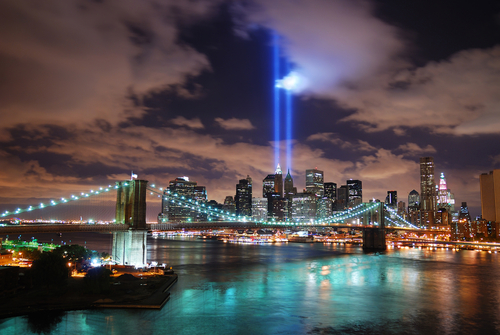 Eleven songs in memory of 9/11 from Bruce Springsteen, Neil Young, Suzanne Vega, Moby and Sinead O'Connor, Mark Knopfler and Emmylou Harris, Leonard Cohen, Tori Amos, John Hiatt, U2, and Hunter Parrish (from 2012's Broadway revival of "Godspell").
Eleven songs in memory of 9/11 from Bruce Springsteen, Neil Young, Suzanne Vega, Moby and Sinead O'Connor, Mark Knopfler and Emmylou Harris, Leonard Cohen, Tori Amos, John Hiatt, U2, and Hunter Parrish (from 2012's Broadway revival of "Godspell").
New Music Friday: Aug. 31, 2012
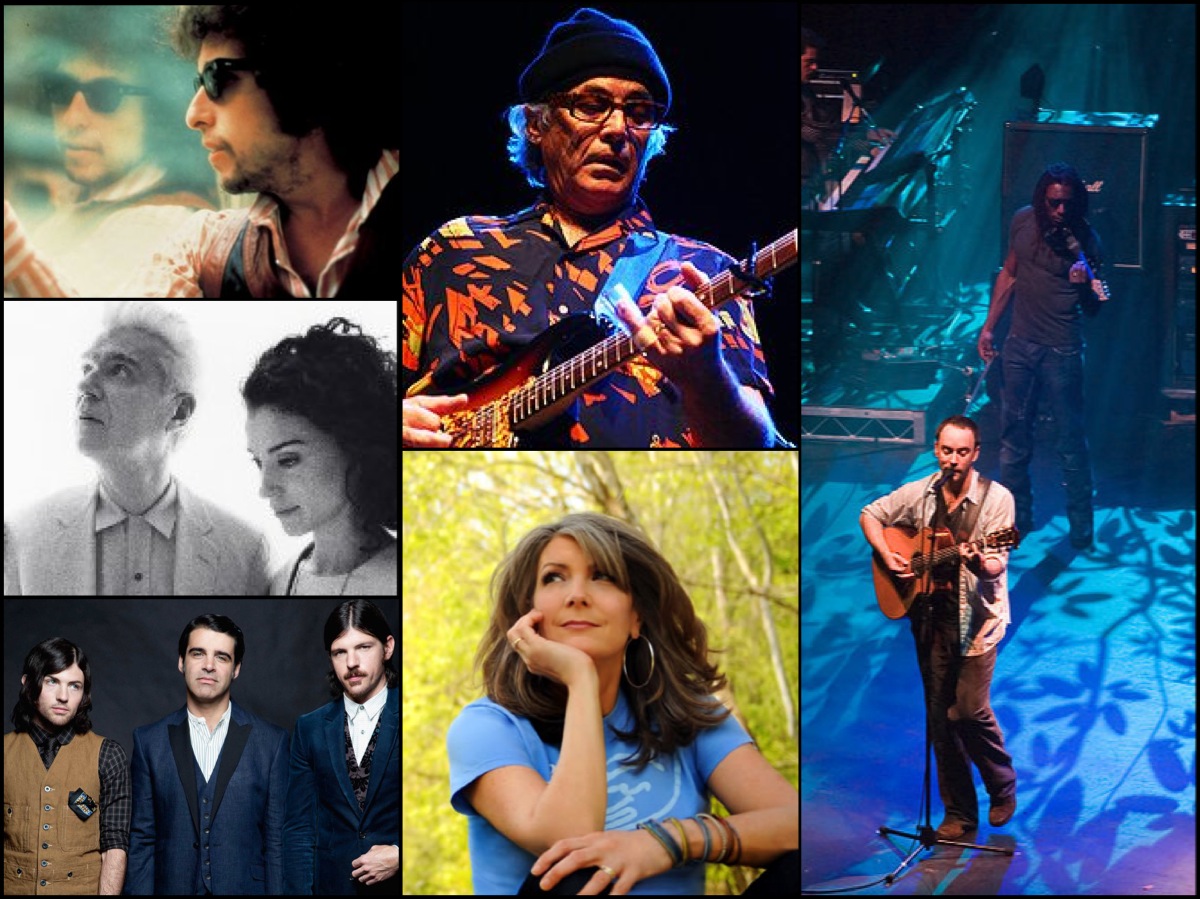 New music from Ry Cooder, Bob Dylan, The Avett Brothers, Dave Matthews Band, Kathy Mattea, and David Byrne & St. Vincent.
New music from Ry Cooder, Bob Dylan, The Avett Brothers, Dave Matthews Band, Kathy Mattea, and David Byrne & St. Vincent.
New Music Friday: Aug. 17, 2012
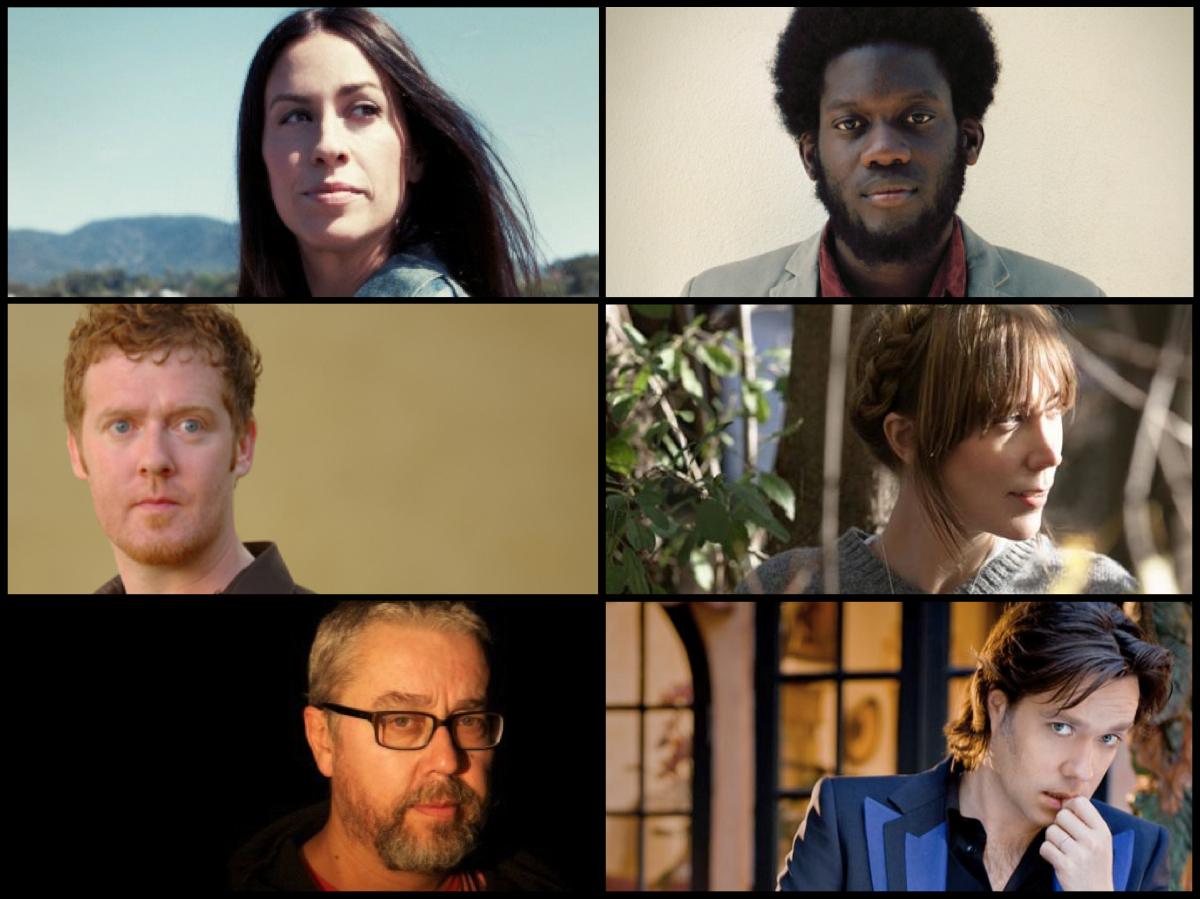 New music from Rufus Wainwright, World Party, Beth Orton, Glen Hansard, Alanis Morissette, and the wonderful new Anglo-Ugandan singer songwriter Michael Kiwanuka.
New music from Rufus Wainwright, World Party, Beth Orton, Glen Hansard, Alanis Morissette, and the wonderful new Anglo-Ugandan singer songwriter Michael Kiwanuka.
New Music Fridays: August 10, 2012
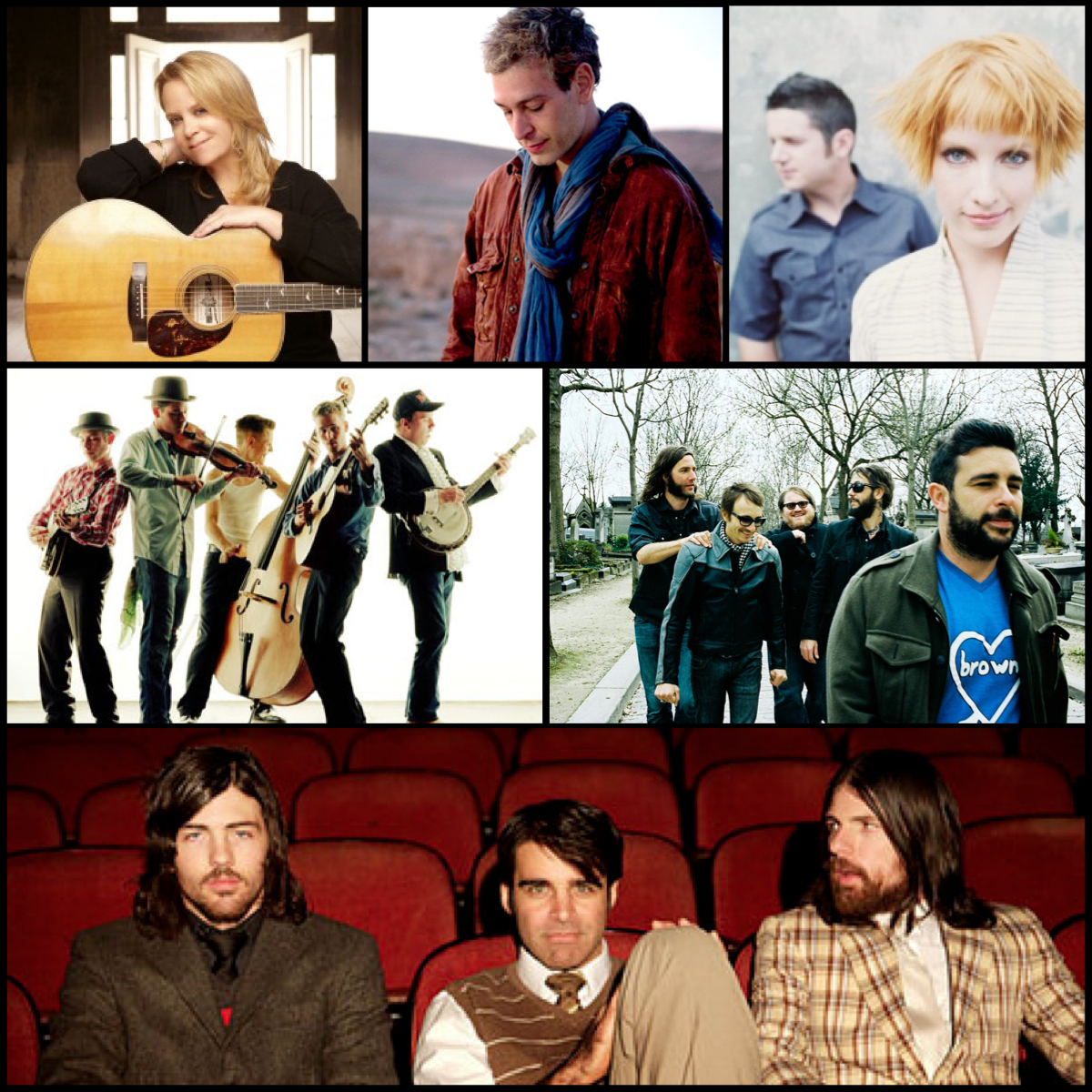
New music from :
- Mary Chapin Carpenter (with James Taylor),
- Sixpence None the Richer,
- Matisyahu,
- Old Crow Medicine Show,
- The Avett Brothers,
- and Band of Horses.
New Mumford & Sons: 'I Will Wait'
Rarely — frankly never before, if my memory is correct — have I literally burst into tears upon hearing a song for the first time. But that is exactly what happened when I listened to Mumford & Sons' new single, "I Will Wait," this morning.
This summer has been a difficult season for my family of origin. My parents are getting older and facing physical challenges that are testing all of our resolve and the core of our spirits. I've been away from my own family in California for a month — the longest I've ever been apart from my son. And it has been ... the word "hard" doesn't quite capture the feeling. Soul wrenching is closer.
In the midst of a roiling sea of emotions, I'm clinging to faith like a life raft, while at the same time wondering desperately what God's up to in all of this tsouris, as my rabbi friend might say.
Perhaps that's why "I Will Wait" put a lump in my throat and filled my weary eyes with hot tears. The author Frederick Buechner says that we should pay careful attention to the things that bring about such reactions, because they are signs that the holy is drawing nigh.
Muslim Women Olympians: 'This Is Legacy'
Dozens of Muslim women are competing at the 2012 Summer Olympics in London — several of them as the very first female athletes chosen (and allowed) to represent their countries in the Olympic games.
These women are vanguards, shattering stereotypes, subverting cultural-religious mores, and creating a legacy that will benefit female Olympians of all creeds for years to come.
As has been widely reported and celebrated (in many quarters), Saudi Arabia sent two women athletes to represent the Arabic nation for the first time at the Olympic games — 16-year-old judoka (judo competitor) Wodjan Ali Seraj Abdulrahim Shahrkhani and 800-meter runner Sarah Attar, 19.
Attar, who is a California-born American but holds dual-citizenship in the Arabian kingdom because her father is Saudi, trains in San Diego, not far from Pepperdine University where she is a junior art major and also runs on the university's track team.
Shahrkhani, whose father is a judo coach and an international referee in the sport, won a dispute with Olympics officials earlier this week to be allowed to compete while wearing her hijab or traditional head covering worn by many observant Muslim women.
Saudi Arabia is not the only majority Muslim country sending its first women competitors to the Olympics. Brunei and Qatar also followed suit, sending five female athletes in total. Runner Maziah Mahusin is the lone woman on Brunei's three-person Olympic team. Qatar's four women Olympians are swimmer Nada Mohammed WS Arakji, sprinter Noor Hussain Al-Malki, table tennis player Aia Mohamed, and air rifle competitor Bahia Al-Hamad.
Both Mahusin and Al-Hamad were chosen as flag bearers for their nations at the opening ceremonies in London last week. Twelve majority Muslim countries — Tajikistan, Qatar, Morocco, Indonesia, Turkey, Jordan, Iraq, Djibouti, Comoros, Brunei, Bahrain, and Albania — chose women as flag bearers at the opening ceremonies that were viewed by an estimated 1 billion people worldwide.
My Sabbath
The spiritual connection between the slow rhythm of August and the Sabbath
All our life should be a pilgrimage to the seventh day; the thought and appreciation of what this day may bring to us should be ever present in our minds. For the Sabbath is the counterpoint of living; the melody sustained throughout all agitations and vicissitudes which menace our conscience; our awareness of God’s presence in the world.
—Abraham Joshua Heschel
The Sabbath
IF THE SEVENTH day is the Sabbath of my week, August is the Sabbath of my year. For most of my life, August has meant vacation. As a child, my parents would pack my brother and me into the station wagon, head to the ferry dock on the Connecticut side of Long Island Sound, and float across the water to the Hamptons, where my mother’s best friend, Patti, lived.
August meant long days in the sun at the beach and long dinners around Patti’s table with fresh zucchini, snap peas, tomatoes, and corn from the farm stand down the road. Some days—some of the most magical of my childhood—before dinner, Patti would hand me a little metal bucket and lead me across her gravel road to a bramble-laden field where we’d pick blueberries.
Nearly 40 years on, the muscle-memories I have of plucking those indigo gems from their prickly rests have not faded a bit. While I usually collect my blueberries these days from Trader Joe’s, I still pick through the berries as Patti taught me to, looking for the few errant green stems left behind by the processing plant.
The Age of Innocence: Wes Anderson's 'Moonrise Kingdom'
I liked this film so much I've already seen it twice. Moonrise Kingdom is so good, in fact, I almost couldn't bring myself to write about it for fear of not doing it justice.
And yet, since I first took my 11-year-old nephew, Ethan, to see it last month, I've been talking about Moonrise Kingdom nonstop, encouraging everyone I know to go see it. It has captured my imagination completely, an absolute tour de force — wholly original and an "instant classic," as I heard one film critic utter tell a companion on his way out of the theater.
Perhaps Ethan, a mythology buff who's never met a fantasy film he didn't like, put it most eloquently when he said (surprising no one more than himself), "That was the best film I've ever seen."
Moonrise Kingdom is director Wes Anderson's seventh feature-length film to date. In an iconoclastic cinematic oeuvre unrivaled among filmmakers of his generation, Anderson's latest stands above the rest of his stellar films — Bottle Rocket, Rushmore, The Royal Tennenbaums, The Life Aquatic with Steve Zissou, Fantastic Mr. Fox and Darjeeling Limited — as an eloquent, funny, enduringly poignant homage to childhood and, moreover, to innocence.
In a word, the film is perfect. I wouldn't change a thing.


